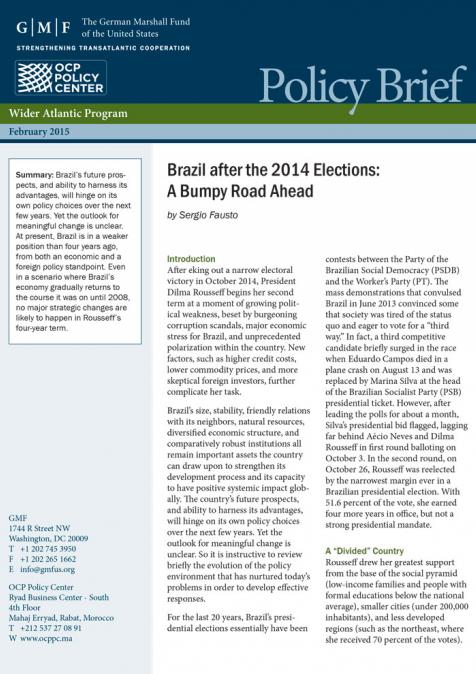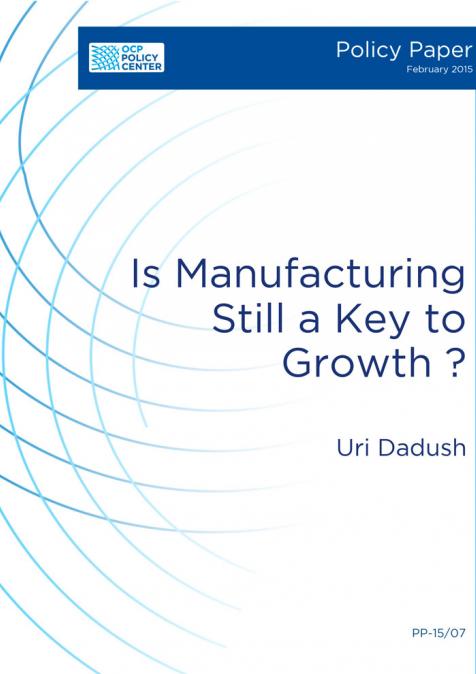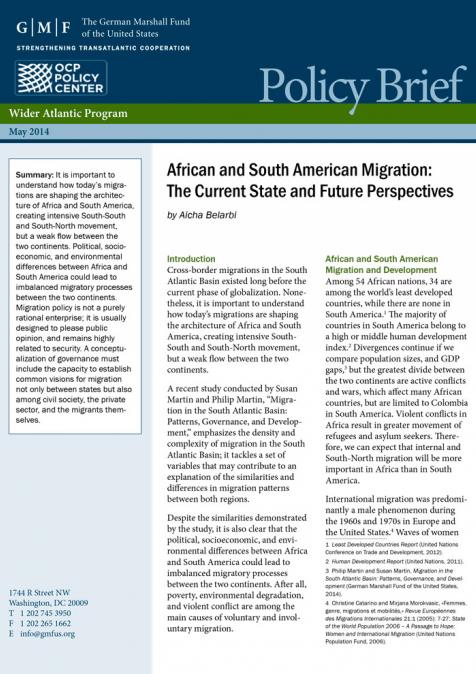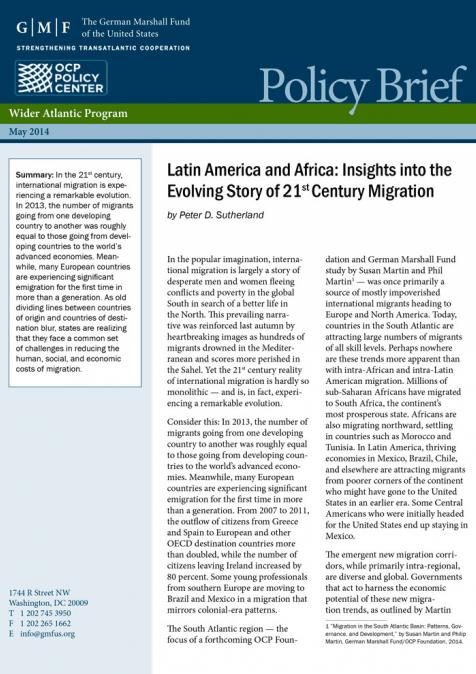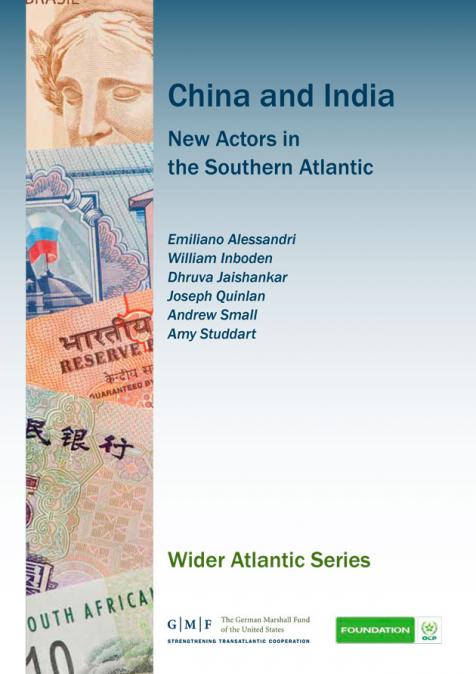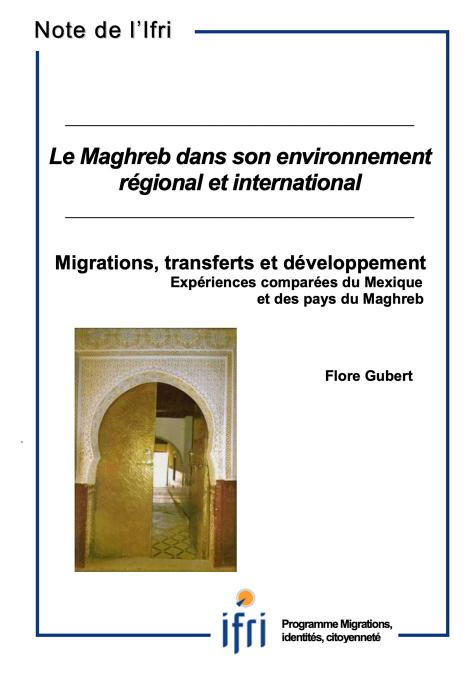When this interview was recorded, Argentina had just sworn in a new president of the Nation, raising many questions about the political future of the South American country. The freshly installed Head of State had led a peculiar campaign, had promised to slash government spending, in a country where half the population receives support from the State. His radical rhetoric against the political elite had galvanized the youth, but also contributed to stoke fear on the future of democracy in Argentina. In this interview, Camila Crescimbeni, former MP and member of the ADEL 2023 cohort, answered questions on her own political engagement and on her perception of what the close future of Argentina might look like.
RELATED CONTENT
-
AuthorsSergio FaustoFebruary 27, 2015Brazil’s future prospects, and ability to harness its advantages, will hinge on its own policy choices over the next few years. Yet the outlook for meaningful change is unclear. At present, Brazil is in a weaker position than four years ago, from both an economic and a foreign policy standpoint. Even in a scenario where Brazil’s economy gradually returns to the course it was on until 2008, no major strategic changes are likely to happen in Rousseff’s four-year term. ...
-
AuthorsFebruary 10, 2015Manufacturing is declining as a share of GDP not only in advanced countries, but in developing countries as well. This new trend, a result of complex forces, should be seen on balance as a reason for development-optimism, not pessimism. In the 21st century economy, manufacturing remains important, but poor countries can attract investment, grow rapidly and diversify away from agriculture on the basis of many possible sources of comparative advantage, without artificially promoting m ...
-
September 15, 2014Interview with S.E.M. Assia Bensalah Alaoui, Itinerant embassador of S. M. King Mohammed VI ...
-
AuthorsAicha BelarbiMay 2, 2014It is important to understand how today’s migrations are shaping the architecture of Africa and South America, creating intensive South-South and South-North movement, but a weak flow between the two continents. Political, socioeconomic, and environmental differences between Africa and South America could lead to imbalanced migratory processes between the two continents. Migration policy is not a purely rational enterprise; it is usually designed to please public opinion, and remain ...
-
AuthorsPeter D. SutherlandMay 1, 2014In the 21st century, international migration is experiencing a remarkable evolution. In 2013, the number of migrants going from one developing country to another was roughly equal to those going from developing countries to the world’s advanced economies. Meanwhile, many European countries are experiencing significant emigration for the first time in more than a generation. As old dividing lines between countries of origin and countries of destination blur, states are realizing that ...
-
AuthorsEmiliano AlessandriWilliam InbodenDhruva JaishankarJoseph QuinlanAndrew SmallAmy StuddartDecember 1, 2012This policy paper examines the role of China and India in Latin America and Africa, and the implications for the United States and Europe. China and India have arrived as active players in the Southern Atlantic space. Their economic presence is expanding rapidly, with a focus on their acquisition of — and access to — raw materials such as fossil fuels, minerals, and agricultural commodities. The political and security implications of their arrival in the region is only now coming u ...
-
AuthorsFlore GubertSeptember 1, 2010The potential synergy between development and migration has become a key feature of most international migration politics. However, this relationship is far from evident. Flore Gubert helps better understand the complexity of this relationship through the comparison of two regional contexts (Mexico and North Africa), and shows how the political and economic context prevailing in the countries of origin modifies the link between migration and development. This Note de l'Ifri is the ...
-
 AuthorsIn life, all forests seem magical, feels Thoralya Dyer, an Australian writer. Dwarfs and ghosts floating above the autumn leaves; Robin Hood, the British cult figure, hiding in a tree trunk in a forest of the king of England, who controls all 'nature's treasures; deer and mushrooms included, bees and Oaktree's, you name it. There is hardly any culture, which does not celebrate the mystery of trees; planks of wood allowed Columbus to discover America. Cedar built Noah's arch to save ...
AuthorsIn life, all forests seem magical, feels Thoralya Dyer, an Australian writer. Dwarfs and ghosts floating above the autumn leaves; Robin Hood, the British cult figure, hiding in a tree trunk in a forest of the king of England, who controls all 'nature's treasures; deer and mushrooms included, bees and Oaktree's, you name it. There is hardly any culture, which does not celebrate the mystery of trees; planks of wood allowed Columbus to discover America. Cedar built Noah's arch to save ...

